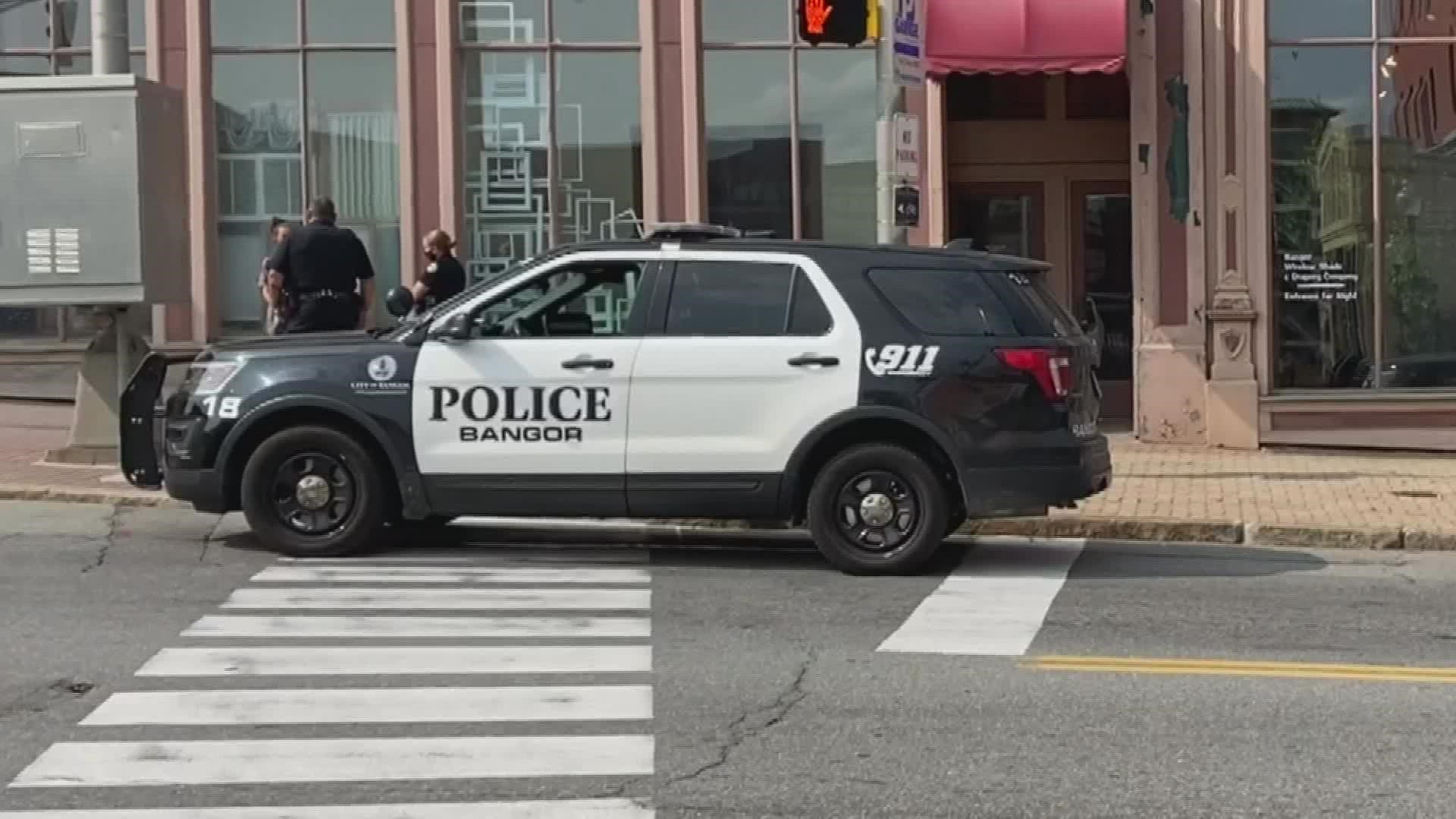MAINE, USA — Police departments across the state are rolling out new requirements regarding how they interact with people who are unhoused who commit minor crimes.
Under a new law, Title 17-A of the Maine criminal code, Maine police forces are required to attempt diversion methods instead of arrest when encountering a person who is experiencing homelessness and is accused of committing one of five minor crimes: trespassing, disorderly conduct, drug possession, urinating in public, and public drinking.
The law passed through the legislature on July 1, 2021, but departments had until March 1, 2022 to write "homelessness crisis protocols" and until April 1 to train staff on the protocols.
Bangor Sgt. Wade Betters said his department has used similar tactics for years and will work to enforce the law fairly for everyone.
"That’s not to say that we can’t make an arrest or issue a ticket, but every situation is different," he said Thursday during an interview outside Bangor Police Department headquarters. "But, again, this law is designed to make it so all law enforcement statewide would understand that the preferred method would be to divert from the criminal justice system."
Betters showed NEWS CENTER Maine a card each officer carries with them, filled with addresses and phone numbers for local and state mental health and housing resources.
Maine Attorney General Aaron Frey was required by the law to write a protocol by Jan. 1 as an example for local departments to use as a template if they desired.
Each police force must have a protocol in place, but those protocols may have desired outcomes instead of ironclad decisions to be made during each encounter.
Under the law, it could be possible for two people in the same city to commit the same crime, where an unhoused person being offered resources and sent on their way but a housed person could be arrested.
Maine State Police Maj. Brian Scott testified on the bill on May 14, as it was debated in the legislature's criminal justice and public safety committee. He wrote that he spoke neither in favor of nor against the bill and said the intent of the law is noble but could potentially lead to people taking advantage of the law or lead to punishing housed people more harshly than others.
The bill's main sponsor, Rep. Victoria Morales, D-South Portland, testified in the same hearing to the law's necessity.
"The majority of the people who enter the doors of Maine jails and prisons today are there because they have experienced trauma, violence, poverty, addiction, disease, oftentimes starting from the day of their birth," Morales told the committee. "We must reject the old value construct that places less value on certain people, and instead maintain that all people have value."
Boyd Kronholm from the Bangor Area Homeless Shelter said the police there have had diversion tactics for years. While there’s some grey area in this new law, for him it’s all about a mindset of what’s best for each human involved.
"We need to spend time with the individual, find out what’s caused you to end up in the situation you’re in and what can we do with some natural supports to strengthen, to prevent that from happening, or to solve that issue," Kronholm said.

